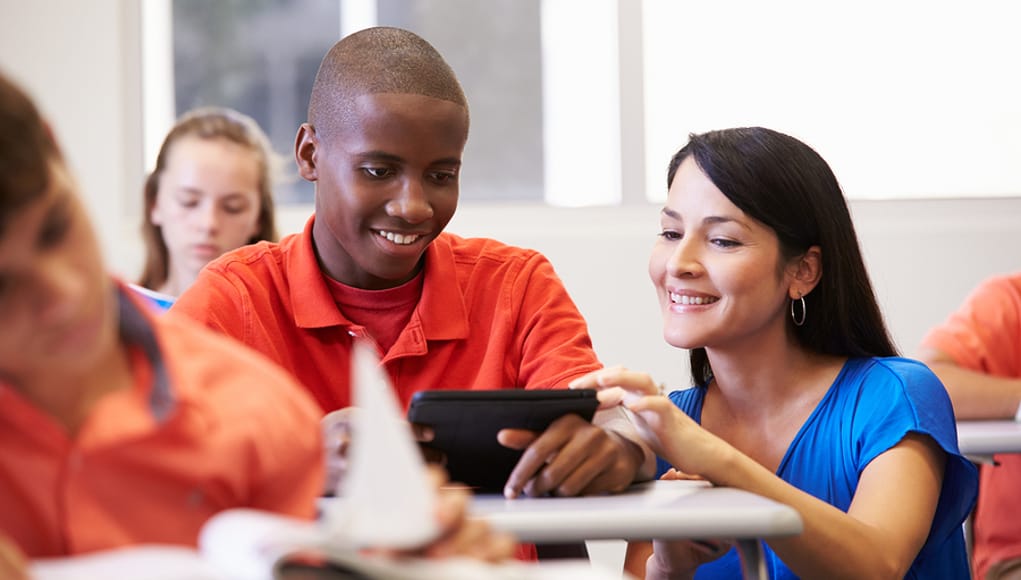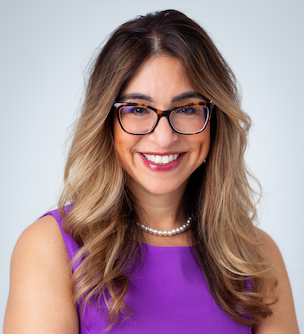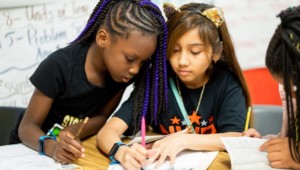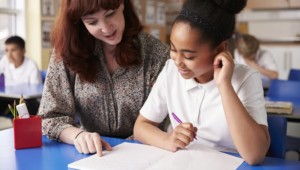Starting Over With Personalized Learning

By Karla Phillips-Krivickas and Ace Parsi
In his book The End of Average, Todd Rose describes how a faulty belief in the idea of an average student has led to the design of one-size-fits-all systems Rose states that “there can never be equal opportunity on average. Only equal fit creates equal opportunity.”
This is the premise of personalized learning—designing systems flexible and responsive enough to both address students’ needs as well as build on their strengths and interests, thus recognizing what every parent and teacher has always known—that every child is different.
Our hope is that personalized learning may present the opportunity to flip the traditional model upside down. Or better yet, put it right side up. Rather than trying to retrofit a new design with accommodations and modifications, does a personalized learning model provide us the long desired opportunity to start with a Universal Design for Learning?
The rapidly growing interest in personalized learning leads us to believe that we may be finally reaching a tipping point. The Foundation for Excellence in Education is working with state leaders to create the policy environments that will allow innovative models to thrive and the National Center for Learning Disabilities is deeply engaged in the critical work of ensuring that students with special needs are also able to benefit from these new models.
NCLD recently conducted 86 one-on-one interviews with key education leaders in New Hampshire, North Carolina and Colorado from both the special education and general education communities. These conversations clearly identified the benefits and challenges of personalized learning for students with special needs but simultaneously pointed to even greater opportunities that can be benefitted from if we are strategic and thoughtful.
What became quickly obvious is that in many ways, personalized learning is the embodiment of high-quality special education practice. The ideas behind multi-tiered systems of support, differentiated instruction and supports, and individualized education plans form a foundation to build from in personalized learning. The difference now is that we are scaling these principles to a whole school or district rather than an isolated room or program, directing these supports towards deeper levels of rigor for all students rather than basic skills for a few, and working towards a culture of integration and inclusion rather than the mindset of separation that too often permeates special education efforts.
Arguably the most difficult yet most critical step in the transition to a personalized learning system is to establish a growth mindset for all stakeholders. Innovative leaders should begin with a concerted and intentional plan to engage in potentially difficult conversations around a historical mindset of low expectations for students with special needs. Research and experience have proven that the strategies that work for students with special needs (and gifted students as well) will be good for all students. This should be the starting point.
The biggest challenge will be to avoid repeating the mistakes of the past because the question remains the same. How do we meet the needs of all students? Fortunately, designing a new personalized system also presents the greatest opportunity by providing a clean slate.
For more, see:
- New Personalized Learning Report for Parents and Communities
- Advancing Human Potential: The Power of Personalized Learning
- How do We Ensure Personalized Learning is a True Equity Initiative?
This post is the first in a three-part series bringing to a close our February editorial focus of “Readiness for All.” Check back on February 26th and 28th to see the second and third installments, and get ready for March, when our focus will be “Creating Powerful Learning Experiences.”
Karla Phillips-Krivickas is the Policy Director for Competency-Based Education at the Foundation for Excellence in Education. Follow her on Twitter: @azkarla.
Ace Parsi is the Personalized Learning Partnership Manager at the National Center for Learning Disabilities (NCLD).
Stay in-the-know with all things EdTech and innovations in learning by signing up to receive the weekly Smart Update. This post includes mentions of a Getting Smart partner. For a full list of partners, affiliate organizations and all other disclosures, please see our Partner page.
Guest Author






Ruth Brown
This is my first visit to your site. Getting Smart is listed as one of my required reading for an on-line course for adding one of the certifications to my MS license. I am delighted to see the title "Starting Over With personalized Learning" as I am attention deficit but yet am also a high achiever. The article is an excellent resource for me. Many thanks for your support of teachers who want to do more to support learning and needs of our students. RB- Jackson Public Schools